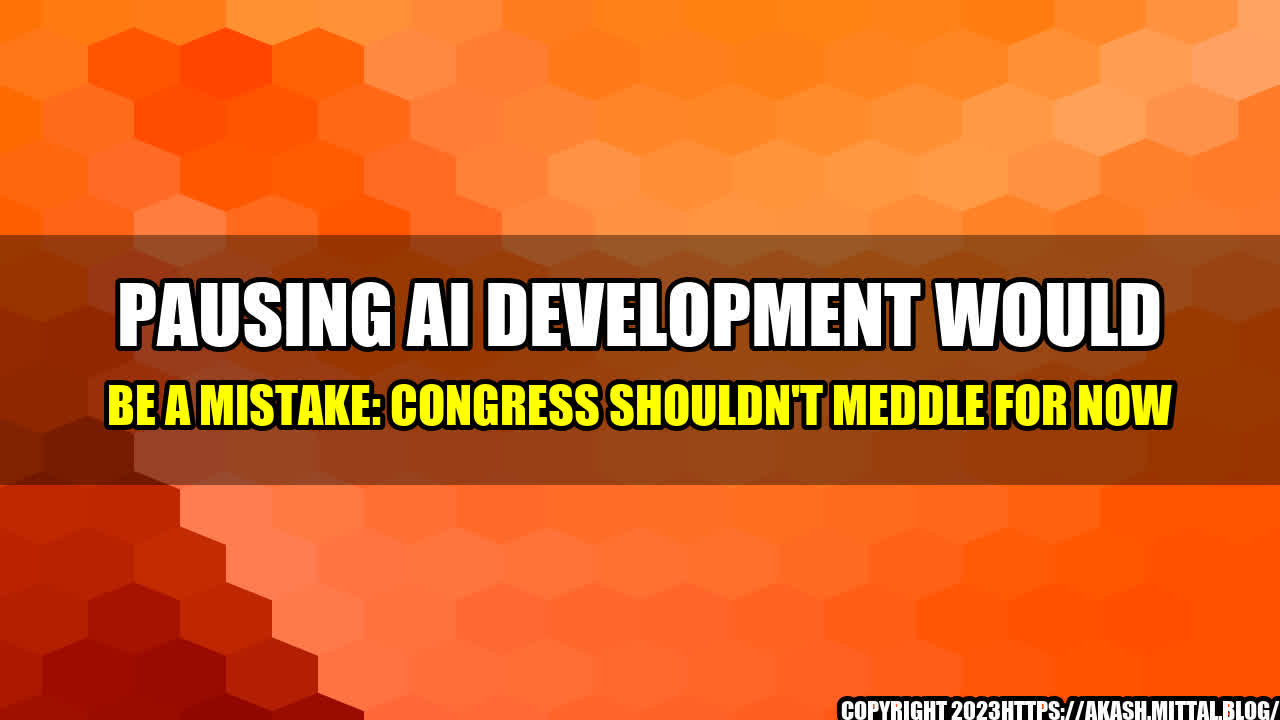Imagine walking on a sidewalk and suddenly a car comes out of nowhere and nearly hits you. You look at the driver, but there is no one behind the wheel. That's the kind of world we could live in if we pause AI development. It could result in significant harm and risk to society.
Artificial intelligence (AI) has been one of the most significant technological advancements of the 21st century. The technology has become so ubiquitous that AI has touched almost every area of our lives, including healthcare, finance, transportation, and cybersecurity. AI is the backbone of the digital transformation movement that has been shaping the economy for decades.
Despite the benefits of AI, some policymakers have raised concerns about the technology's impact on society and the economy. Most notably, Congress has recently proposed several bills aimed at curbing the perceived negative consequences of AI. If these bills are passed, AI could face significant curtailment in the US and beyond. In this article, we argue that pausing AI development would be a mistake, and Congress shouldn't meddle for now.
The Benefits of AI Outweigh the Risks
AI has brought immense benefits to society, such as:
- Improved healthcare: AI-powered medical devices and applications have revolutionized healthcare, improving diagnostic accuracy and personalized treatment options.
- Increased efficiency: AI can help businesses and organizations to streamline their operations to achieve greater efficiency and cost savings.
- Enhanced convenience: AI-powered devices, such as home assistants, make our daily lives more comfortable and convenient.
These benefits are too significant to ignore, and pausing AI development would limit its potential positive impact on society. Instead of pausing development, policymakers should focus on creating regulatory frameworks that balance the risks and benefits of AI.
The Risks Are Manageable
Like any technology, AI has its risks. For example:
- Job displacement: AI could automate jobs, leading to job displacement and widening the income gap between highly-skilled and low-skilled workers.
- Privacy and security: AI could be used to infringe on personal privacy and security by illegally accessing sensitive information or conducting cyber attacks.
- Algorithmic bias: AI algorithms could perpetuate bias and discrimination, leading to unfair treatment of certain groups of people.
However, these risks are manageable with appropriate regulation and oversight. For example, job displacement could be offset by retraining workers for new positions. Privacy and security risks could be mitigated by implementing robust data protection and cybersecurity measures. Algorithmic bias could be addressed by promoting diversity in AI development teams and conducting regular audits of AI algorithms.
Congress Shouldn't Meddle for Now
While it is essential to regulate AI appropriately, Congress should not impede AI development for now. A ban on AI development or research could hinder progress and innovation in the field, putting countries and businesses at a competitive disadvantage.
Rather than proposed bans on AI, policymakers should focus on creating regulatory frameworks that promote innovation, ensure safety, and encourage responsible use of the technology. This approach would enable countries and businesses to maintain a competitive edge in the global AI landscape while minimizing the potential negative consequences.
Conclusion
AI is one of the most significant technological advancements of our time, and its benefits outweigh the risks. While policymakers should regulate AI appropriately, impeding or slowing down AI development would be a mistake. Rather than proposed bans, policymakers should focus on creating regulatory frameworks that promote innovation, ensure safety, and encourage responsible use of the technology.

Curated by Team Akash.Mittal.Blog
Share on Twitter Share on LinkedIn